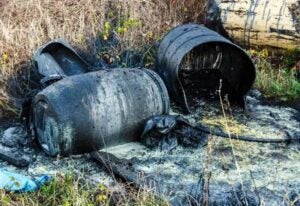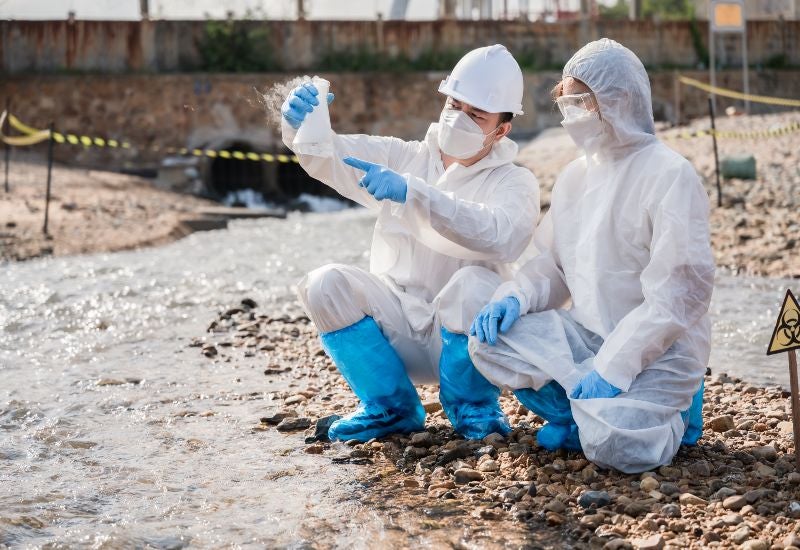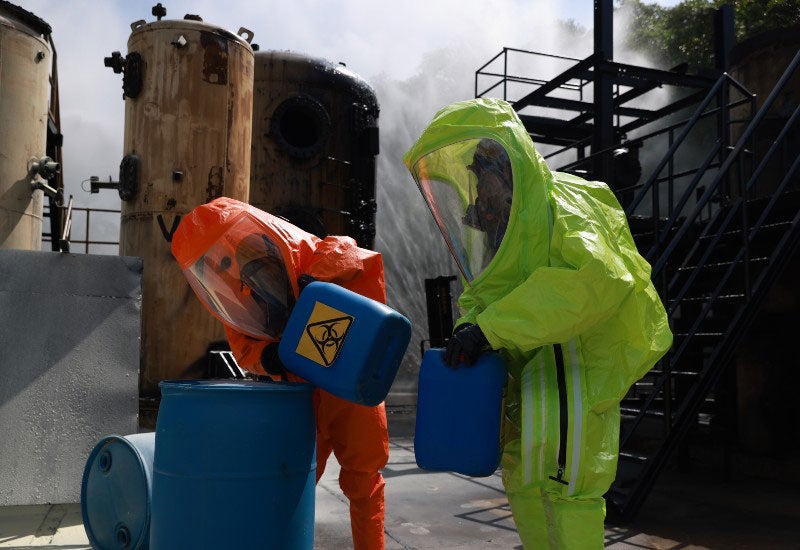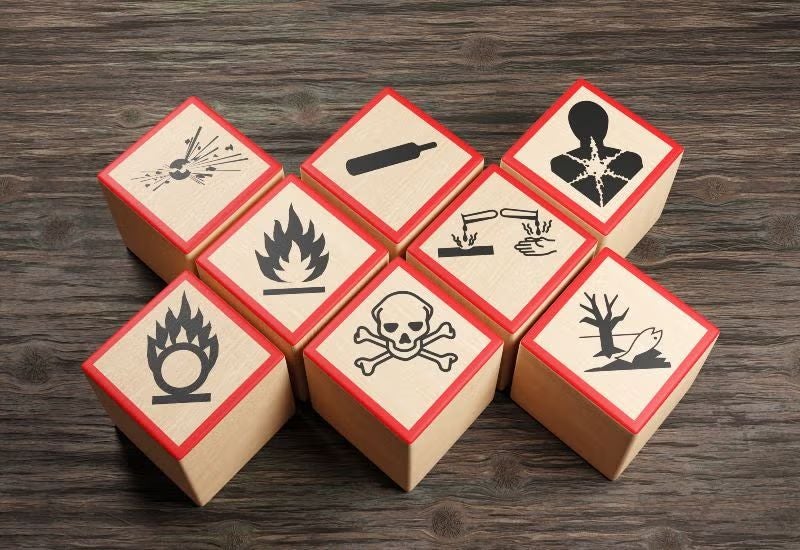-
Understanding the Different Types of Waste Streams
Different Types of Waste Streams
It’s important to effectively manage waste in order to maintain a clean, safe environment and promote sustainable practices. A significant aspect of this management is understanding waste streams—distinct types of waste that originate from various sources and require specific handling methods. Whether you’re a business, municipality, or industrial facility, comprehending the characteristics and types of waste streams is essential to making informed decisions about disposal, recycling, and overall waste management.
What is a Waste Stream?
A waste stream refers to the complete flow of waste from its source through to its disposal. It encompasses all the steps, from the generation of waste, collection, and transportation, to its eventual processing and disposal. Each waste stream contains materials that require different management methods to ensure they are handled safely, efficiently, and in compliance with environmental regulations.
Characteristics of Waste Streams

Waste streams can vary significantly depending on their origin and the materials they contain. Key characteristics include:
- Composition: Waste streams consist of various materials, such as organic matter, plastics, metals, or chemicals, each requiring different treatment methods.
- Source: The origin of waste, whether it be industrial, municipal, or agricultural, defines the waste stream’s characteristics and disposal needs.
- Volume: The quantity of waste generated plays a role in determining the appropriate management strategy, with larger volumes often requiring more complex handling processes.
- Hazard Level: Some waste streams contain hazardous materials, necessitating specialized disposal to protect human health and the environment.
Types of Waste Streams
Waste streams can be broadly classified into several categories, each with unique management requirements:
- Municipal Solid Waste Stream (MSW): This includes everyday items discarded by households and businesses, such as food waste, packaging, and paper products. Proper sorting and recycling are crucial for managing this waste stream effectively.
- Industrial and Commercial Waste Streams: Generated by manufacturing and production activities, these waste streams can include a wide range of materials, from scrap metals to chemical byproducts. Managing industrial waste streams often involves more stringent regulations due to the potential environmental impact.
- Hazardous Waste Streams: Containing materials that pose significant risks to health and the environment, hazardous waste streams must be managed with extreme care. This category includes items like toxic chemicals, batteries, and medical waste.
- Liquid Waste Streams: Comprising wastewater and other liquid residues, these waste streams often require treatment before disposal to prevent contamination of water bodies. Industries and municipalities must manage liquid waste streams effectively to protect water quality.
- Non-Hazardous Waste Streams: These include materials that are not an immediate threat to health or the environment, such as certain types of industrial waste, construction debris, and agricultural waste. While less dangerous, proper management is still vital to minimize environmental impact.
- Construction and Demolition (C&D) Waste Streams: Construction and demolition activities generate significant waste streams composed of materials like concrete, wood, metals, bricks, and glass. These waste streams can also include hazardous components such as asbestos, lead-based paints, or treated wood. Managing C&D waste streams involves sorting and recycling materials to minimize landfill use, reduce environmental impact, and comply with regulations. Proper management of these streams is essential for promoting sustainability in the construction industry while reducing costs associated with waste disposal.
The Importance of Understanding Different Types of Waste Streams
Recognizing and categorizing different types of waste streams is essential for several reasons:
- Environmental Protection: Proper waste stream management helps reduce pollution, conserve resources, and protect ecosystems. For example, separating recyclable materials from solid waste streams ensures they are reused, reducing the strain on natural resources.
- Regulatory Compliance: It’s important to adhere to local, state, and federal regulations regarding waste management to avoid penalties and ensure safe disposal practices. This is especially important for managing hazardous waste streams, which are subject to strict regulations.
- Cost Efficiency: Effective waste management can reduce disposal costs, enhance resource recovery, and even generate revenue through recycling programs. Understanding the types of waste streams your business produces allows you to implement more efficient and cost-effective management practices.

Difference Between Non-Hazardous & Hazardous Waste Streams
The primary difference between non-hazardous and hazardous waste streams lies in their potential risk to health and the environment. Hazardous waste streams contain toxic, reactive, corrosive, or flammable materials that require specialized handling and disposal. In contrast, non-hazardous waste streams, while still needing proper management, do not pose the same level of risk. Managing hazardous waste streams is more complex and costly, but it is essential for ensuring safety and regulatory compliance.
Why Choose Excel Industrial Group in Houston, TX?
Excel Industrial Group is a leader in waste management services with over 25 years of experience, specializing in both hazardous and non-hazardous waste streams. We understand the complexities involved in managing different types of waste and offer tailored solutions that prioritize safety, compliance, and cost-efficiency. Our expertise extends across all waste types, ensuring your business remains compliant with regulations while minimizing environmental impact. Located in Houston, TX, we provide local businesses with the support they need to manage waste effectively and responsibly.
Contact Us for All Your Waste Solutions in Houston, TX
If you’re looking for reliable and efficient waste management services, Excel Industrial Group is here to help. Our team is ready to provide you with the expert guidance and service you require. Ready to take control of your waste management? Fill out our contact form or call us today to speak with our professional team about your waste solutions in Houston, TX, and learn how we can assist in managing your waste.
-
Characteristics of Hazardous Waste
Evaluating Characteristics of Hazardous Waste
Hazardous waste is an issue that demands attention from every industry, large or small. Properly handling and disposing of hazardous waste is crucial to protecting the environment as well as the safety and health of customers, employees, and the community at large. However, understanding hazardous waste isn’t always straightforward. This article will explore the characteristics of hazardous waste and why managing it effectively is essential.
What is Hazardous Waste?
Hazardous waste is material that poses a major risk to the safety or health of people or the environment due to its physical, biological, or chemical properties. The Environmental Protection Agency (EPA) classifies this waste based on its origin, composition, and potential hazards. These wastes may come from various sources, including industrial processes, laboratories, or even households, and can exist in solid, liquid, or gaseous forms. The diverse nature of hazardous waste means that proper classification and disposal are essential to prevent harmful consequences.

What Does Hazardous Waste Look Like?
Hazardous waste does not have a single look—its appearance varies widely depending on its type and source. Some hazardous wastes are visibly dangerous, like corrosive acids or highly flammable liquids. Others, like certain solvents or residues from industrial processes, may appear harmless but contain toxic components that require careful handling. It’s important to recognize that hazardous waste isn’t always overtly dangerous in appearance. For instance, a container of mixed radiological wastes or mixed hazardous waste has characteristics that might look similar to a standard chemical container, yet it possesses characteristics that make it much more dangerous.
Characteristics of Hazardous Waste
To manage hazardous waste effectively, it is crucial to understand its basic characteristics. Hazardous waste is typically identified by one or more of the following characteristics:
- Ignitability: This type of waste can easily catch fire. Examples include certain liquids with low flashpoints such as solvents and waste oils.
- Corrosivity: Corrosive wastes can destroy or damage other materials or living tissue due to their acidic or alkaline nature. Common examples include battery acids and industrial cleaning agents.
- Reactivity: Under normal conditions, reactive wastes are unstable and can cause explosions, toxic fumes, or other dangerous reactions when exposed to water, heat, or shock. For example, certain cyanides and sulfides fall under this category.
- Toxicity: This type of waste is harmful or fatal when ingested or absorbed. It can pollute the environment by leaching into groundwater. Examples include certain pesticides and heavy metals like lead or mercury.
These basic characteristics of hazardous waste are used to categorize and manage the waste properly. Any waste exhibiting one or more of these traits must be treated with care, ensuring that it does not harm people or the environment during storage, transport, or disposal.
Evaluating Hazardous Waste Characteristics
Evaluating hazardous waste characteristics involves identifying the specific dangers associated with the waste. This process typically requires chemical analysis, safety data review, and adherence to regulatory guidelines. Waste generators must conduct proper evaluations to categorize their waste accurately, ensuring that it meets all legal and safety standards. This evaluation not only helps in identifying the correct hazardous waste category but also in determining the most suitable disposal methods. Proper evaluation is crucial to prevent environmental contamination and ensure compliance with federal and state regulations.

Why Choose Excel Industrial Group in Houston, TX?
When it comes to hazardous waste management, choosing a knowledgeable and experienced partner is essential. Excel Industrial Group in Houston, TX, brings over 25 years of expertise to the table, ensuring that your hazardous waste is handled with care and compliance. We specialize in managing all types of hazardous waste, including mixed hazardous and radiological wastes, providing safe, cost-effective solutions tailored to your needs. Our team understands the unique challenges of hazardous waste management and is committed to delivering efficient, environmentally responsible services.
Contact Us for All Your Hazardous Waste Solutions in Houston, TX
If you’re in need of professional hazardous waste management in Houston, TX, look no further. Excel Industrial Group is your trusted partner for comprehensive waste solutions. From evaluation to disposal, we handle every step with precision and care, ensuring your waste is managed according to the highest standards. Our expert team is here to provide you with tailored solutions for all your hazardous waste needs in Houston, TX. Don’t leave safety to chance—reach out now to speak with our professionals and secure the best waste management services available. Contact us today by filling out our contact form or calling us directly.
